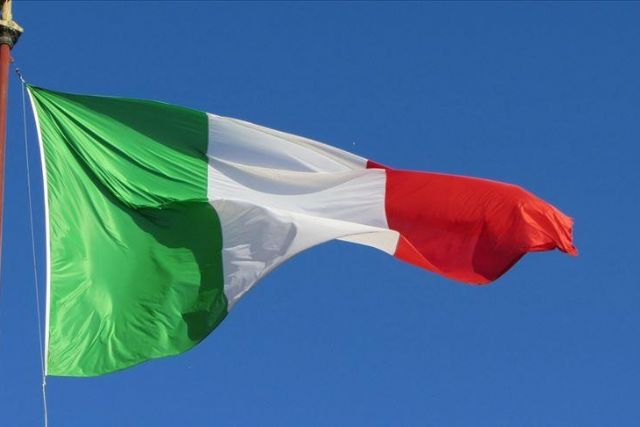Italy marks 30th anniversary of murder of anti-mafia judge Falcone
Killings of Giovanni Falcone and one of fellow judge Paolo Borsellino mark shift in battle against Sicilian Mafia

ROME
Italy marks on Monday the 30th anniversary of the shocking murder of anti-mafia judge Giovanni Falcone, who was assassinated by the Corleonesi Mafia clan in a devastating bombing near Palermo on May 23, 1992.
The explosion, now widely remembered as the Capaci massacre, hit the A29 motorway near Palermo's airport, as Falcone was on his way home after returning from Rome.
The massive blast also killed Falcone's wife, Francesca Movillo, and three police officers of Falcone's escort team.
The following investigation discovered that the killing had been orchestrated by Cosa Nostra godfather Toto Riina, who allegedly toasted the judge's death with champagne.
The bomb, which resonated for kilometers, consisted of 13 barrels filled with 500 kilograms (1,100 pounds) of explosives. Falcone was driving his car from Palermo's Punta Raisi airport when mobster Giovanni Brusca detonated the explosives placed in a culvert under the motorway.
After just two months, Falcone's death was followed by one of his friend and fellow judge Paolo Borsellino, who was also killed by a car bomb in Palermo, along with five police officers, on July 19, 1992.
Falcone and Borsellino had invented a new way of battling the Sicilian Mafia, creating what was called “a pool” of magistrates who acted in strict cooperation, sharing and keeping key information during complicated investigations of the Mafia's national and international connections.
Falcone's death resulted in a huge wave of public grief, with thousands of people gathering in Palermo for his funerals, which were broadcast live on national television.
Together with Borsellino, Falcone had spent most of his career trying to overthrow the power of the Mafia and unveil its secret ties with the political establishment.
The two judges' deaths, just 57 days apart, resulted in a major crackdown against the Sicilian Mafia and led to the 1993 arrest of Riina, who died in jail in 2017.
Commemorative events are taking place on Monday in Palermo and across Italy, with mayors to hold a minute of silence at 5.57 p.m., the exact time of the Capaci bombing.
“The sorrow and dismay of those days became a dramatic opportunity to react to the violent attack launched by the Mafia,” President Sergio Mattarella said on Monday, commemorating Falcone in Palermo.
In those same years, another key team of magistrates was the Milan pool – formed by Antonio Di Pietro, Gherardo Colombo and Piercamillo Davigo, and led by Francesco Saverio Borrelli and Gerardo D'Ambrosio. They acted in a series of trials against corruption in politics, now famously known as Mani Pulite (Clean Hands), which also started in 1992.
For many Italian and international observers, Falcone and Borsellino deaths and the Mani Pulite trials represented a turning point in Italy's political history, marking the start of the so-called Second Republic.





